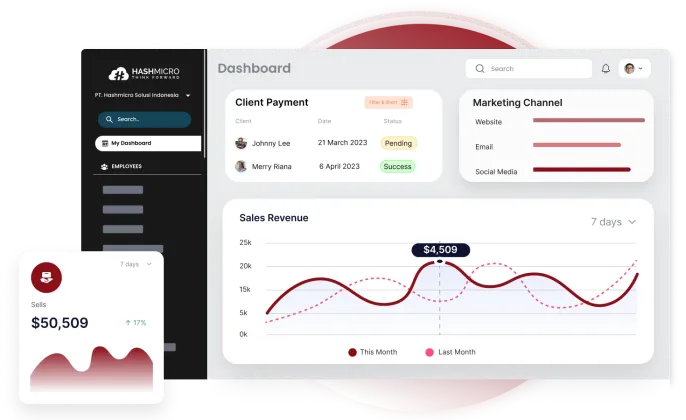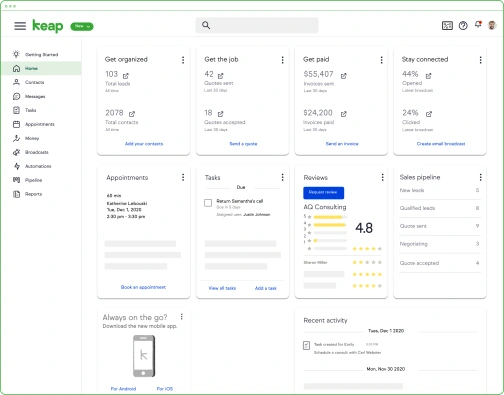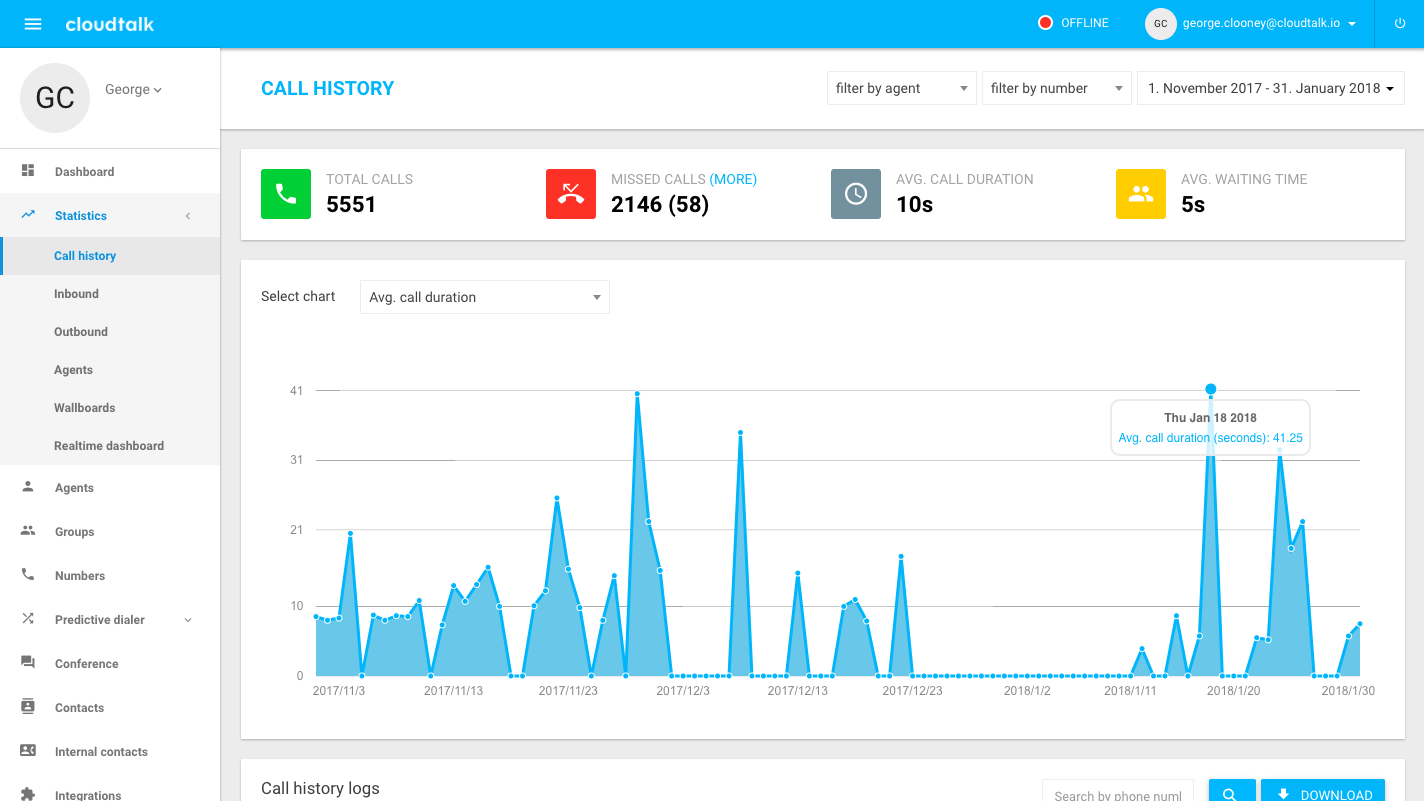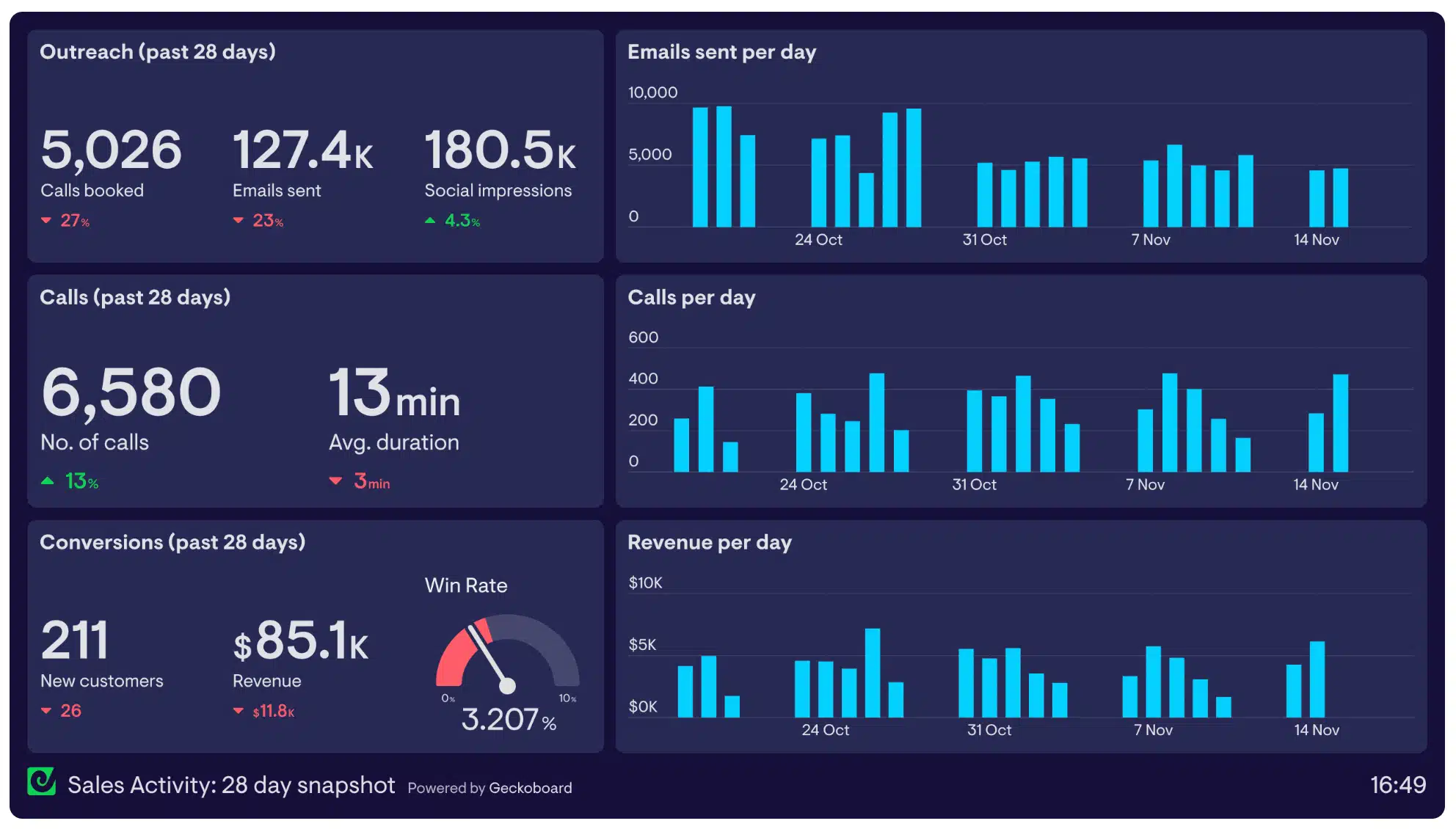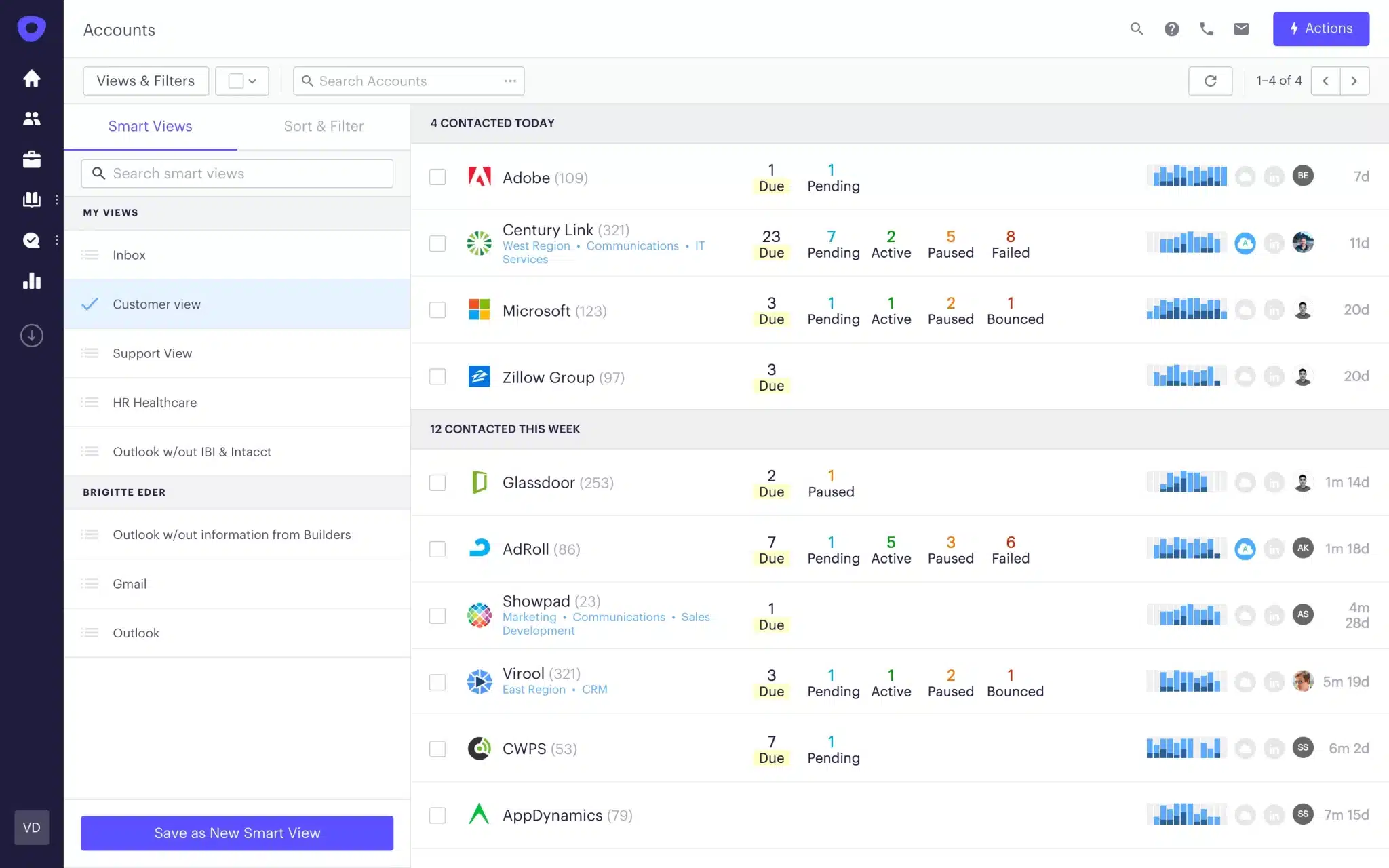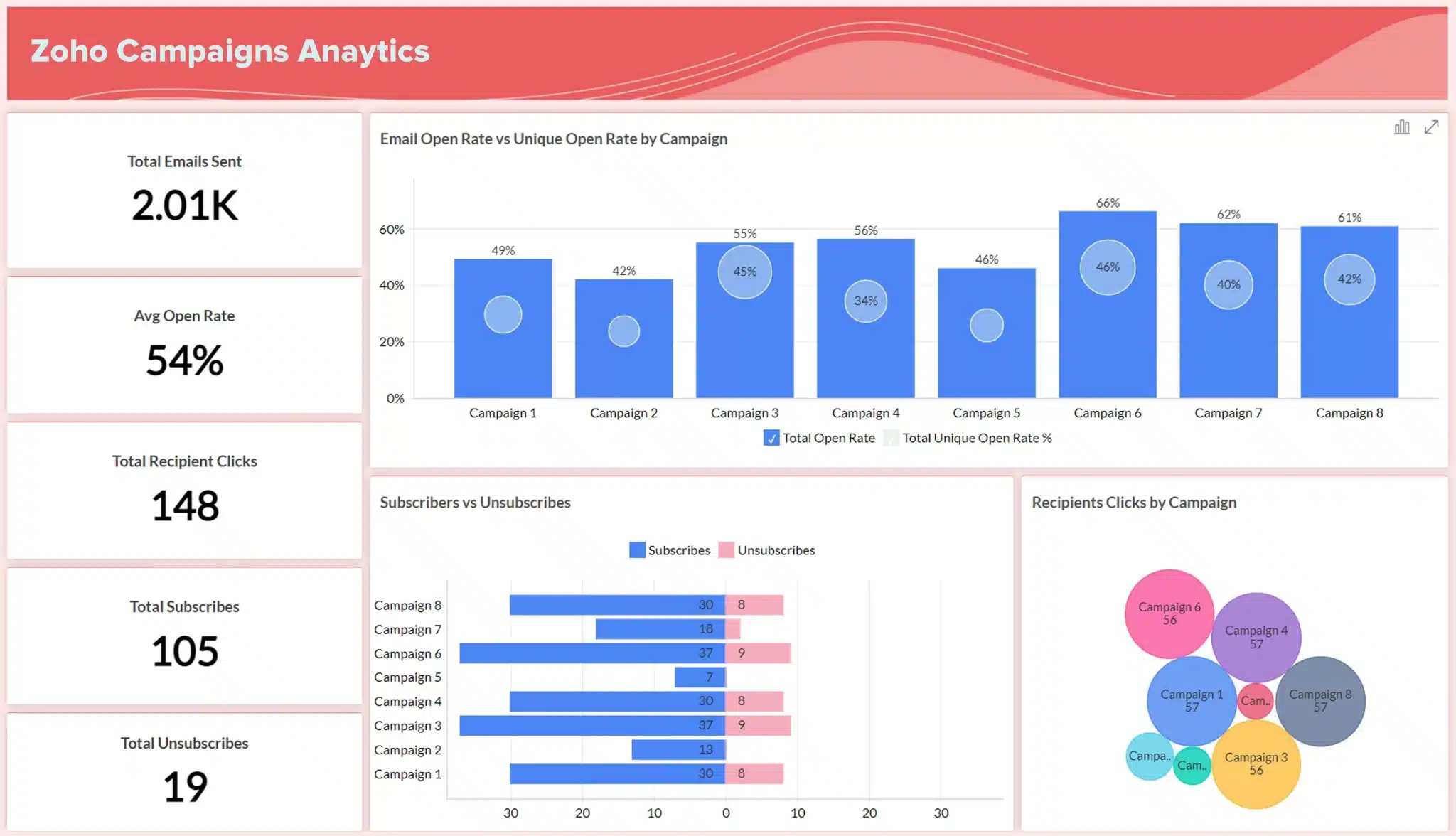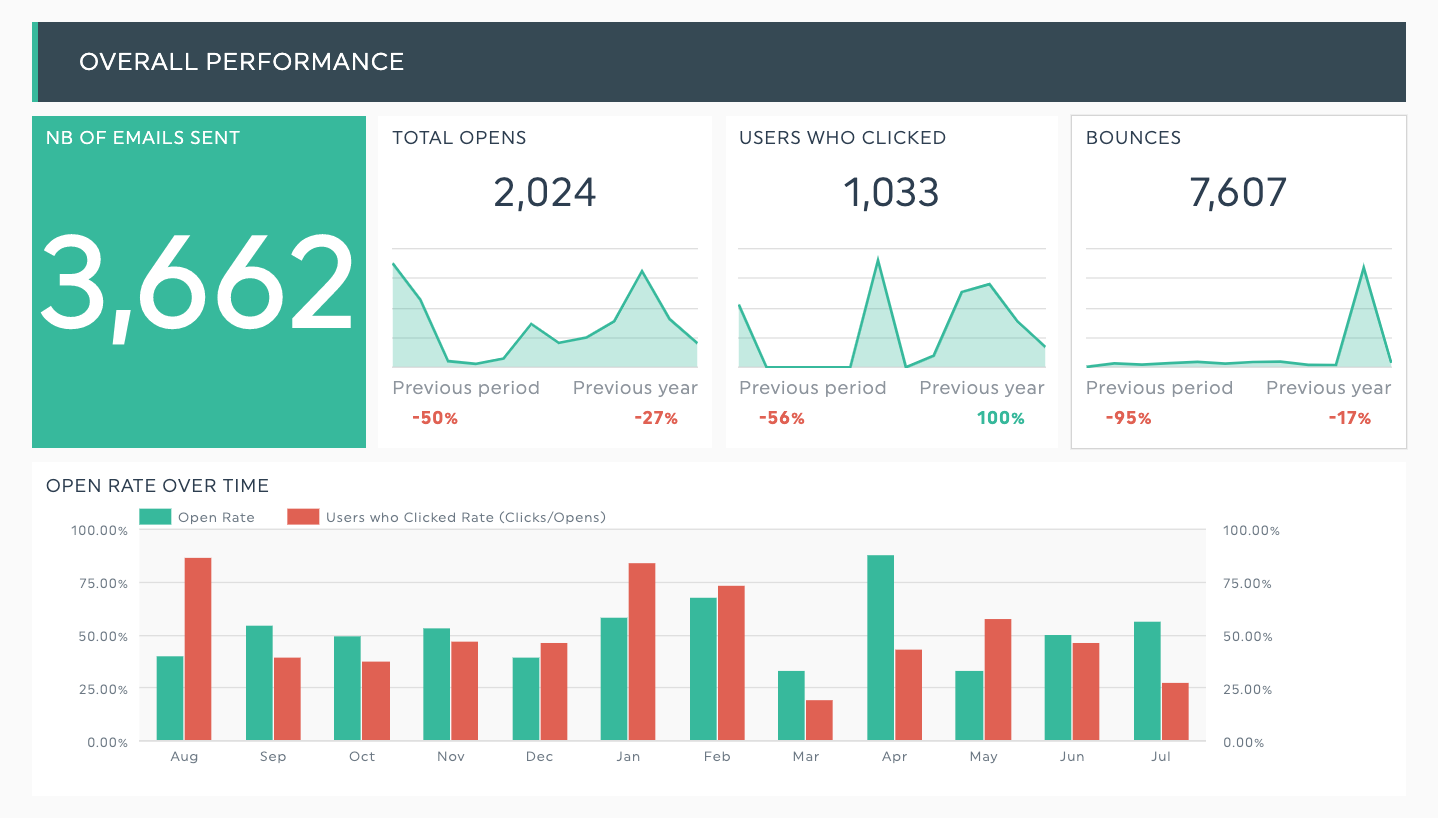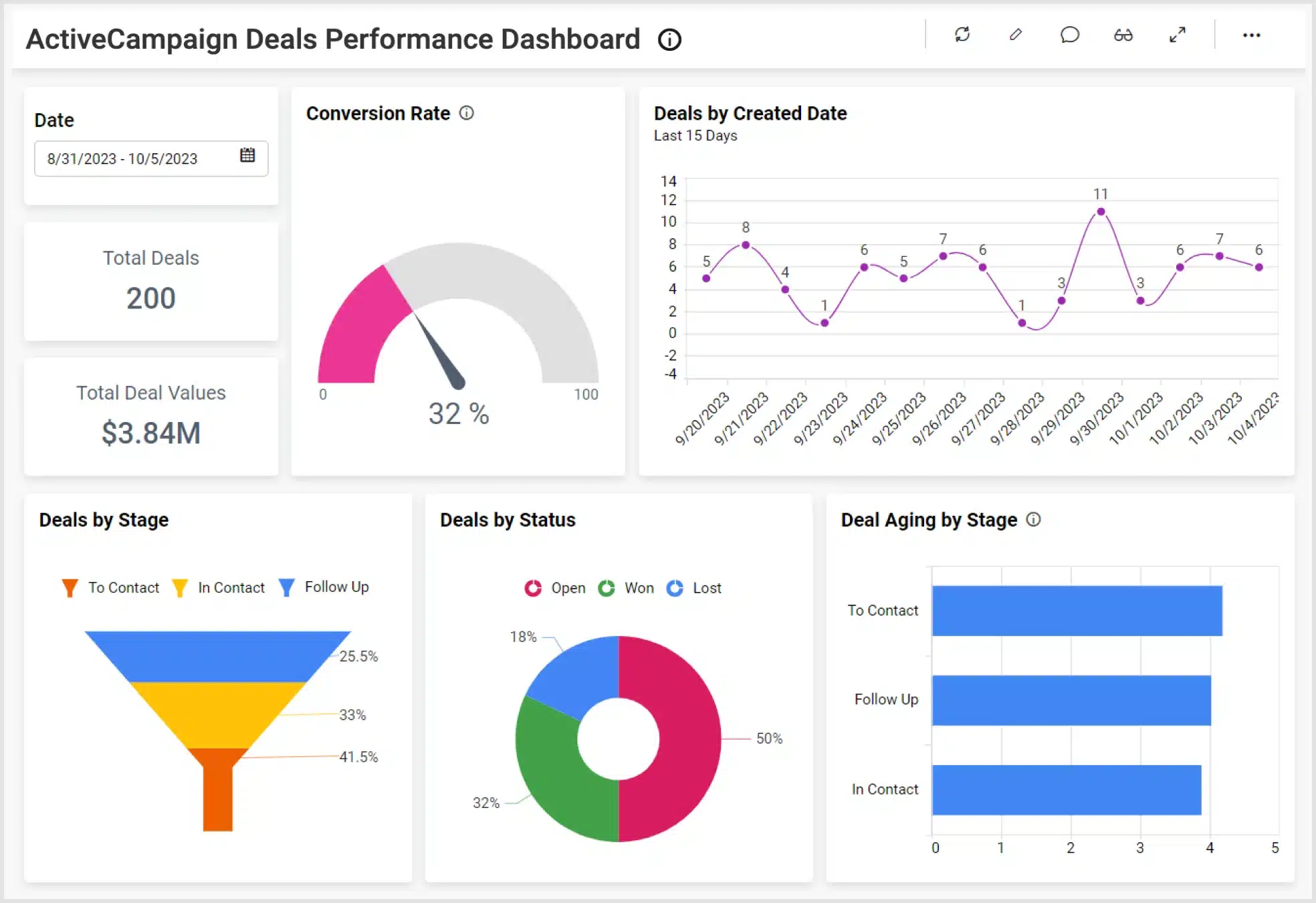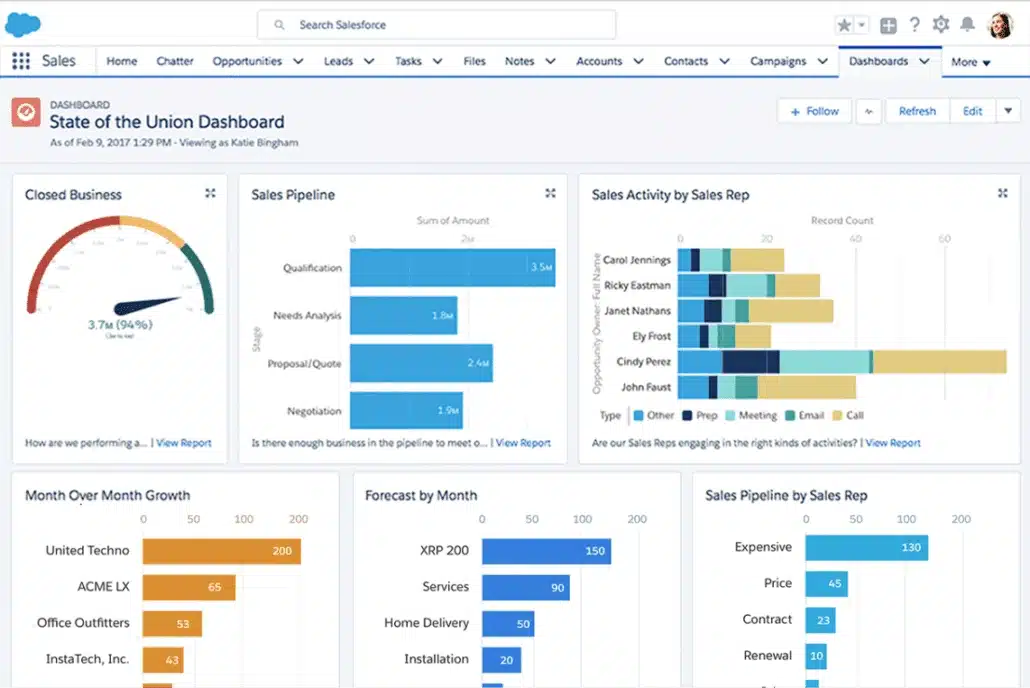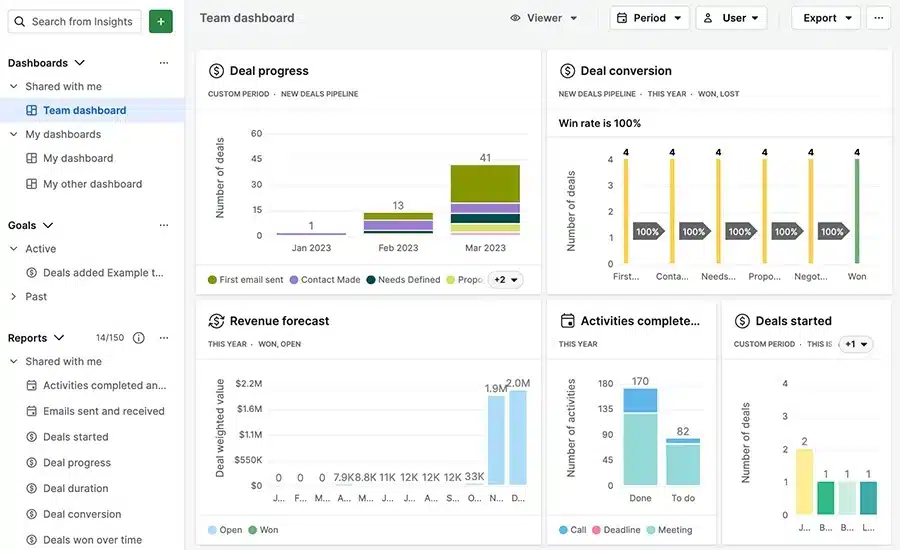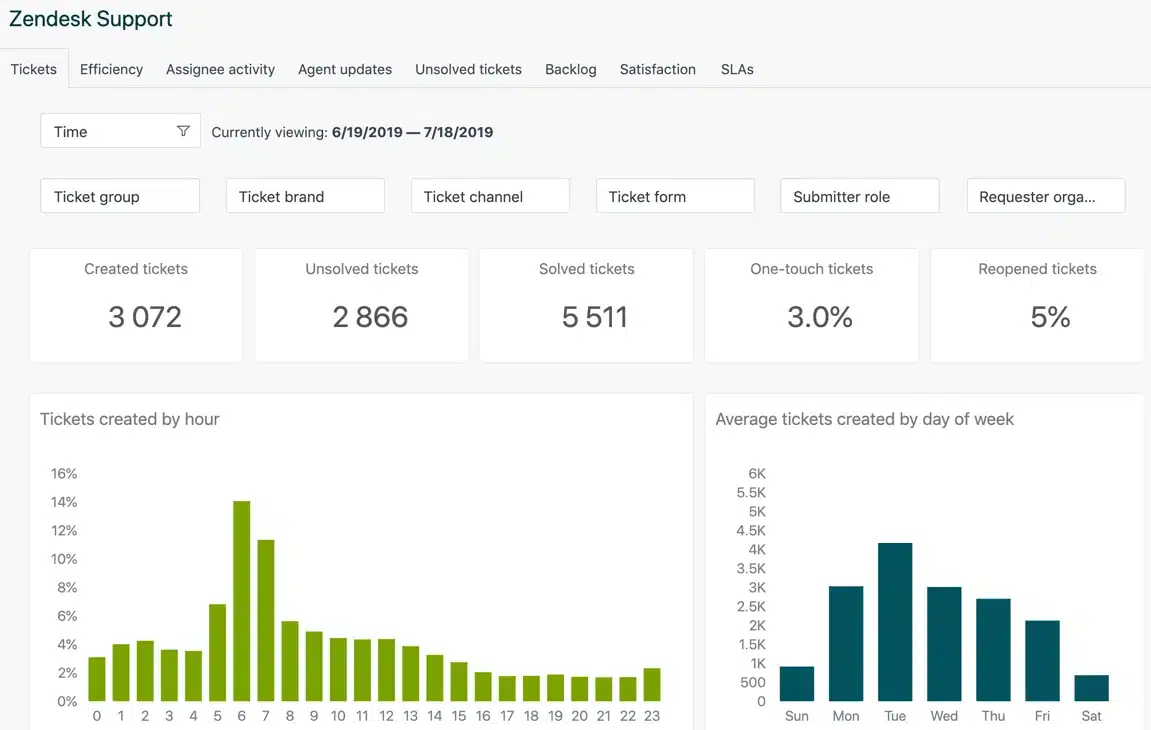Managing sales processes manually can be time-consuming, error-prone, and difficult to scale. That’s why sales automation tools have become essential for modern businesses, especially in a competitive market like Singapore.
According to Grand View Research, the global sales automation market is expected to grow at a CAGR of 8.6% through 2030, reflecting a substantial shift toward digital tools across industries. In Singapore, adoption is accelerating, particularly among SMEs and companies aiming for faster, more efficient growth.
As a comprehensive local solution, HashMicro CRM Sales stands out as a top choice for businesses in Singapore. With features like lead management, automated scheduling, and real-time sales analytics, HashMicro helps streamline the entire sales process from start to finish.
In this article, we highlight the 12 best sales automation tools for businesses in Singapore in 2025, including HashMicro CRM Sales, one of the leading solutions.
Table of Content:
Table of Content

Key Takeaways
|
What Are Sales Automation Tools?
Sales automation tools are software that help businesses streamline and simplify repetitive sales tasks. These tasks can include lead capturing, follow-up scheduling, and sales reporting, and if done manually, often take up valuable time and increase the risk of human error.
By automating these processes, sales teams can work more efficiently and focus on building relationships and closing deals. Business process automation ensures no lead is missed, follow-ups happen on time, and managers can access real-time data to make faster, smarter decisions.
Sales automation tools have become essential as businesses grow and digital expectations rise, particularly in advanced markets like Singapore. They play a key role in streamlining operations, reducing errors, and keeping companies ahead of the competition.
Benefits of Sales Automation Tools
Implementing business automation software offers more than just time savings—it can transform how your sales team operates daily. Here are three key benefits businesses can expect when adopting the right automation solution:
1. Increased productivity
Automation reduces time spent on repetitive tasks like data entry, follow-up scheduling, and manual reporting. This allows sales teams to focus on building relationships, closing deals, and hitting targets faster and more consistently.
2. Better lead management
Sales automation tools help capture and organize leads from various channels, qualify them automatically, and assign them to the right sales reps. This ensures no lead is overlooked and follow-ups happen at the right time, improving conversion rates.
3. Data-driven decisions
With built-in analytics and real-time dashboards, businesses gain deeper insights into their sales performance, customer behavior, and team efficiency. These insights help leaders make faster, more informed decisions that drive growth.
All-in-One Sales Automation Platforms
If your business needs a comprehensive solution to manage every stage of the sales cycle—from lead generation to closing and beyond—all-in-one sales automation platforms are the way to go.
These tools combine CRM, communication, pipeline tracking, and reporting into a single system, helping sales teams stay organized, efficient, and data-driven. Below are three trusted platforms that offer powerful all-in-one capabilities for businesses of various sizes:
1. HashMicro CRM Sales
HashMicro CRM Sales is a powerful all-in-one sales automation platform designed to optimize every aspect of the sales process. It helps businesses efficiently manage their sales pipeline, automate follow-ups, track leads, and generate insightful analytics—all within a single system.
HashMicro’s seamless integration with other ERP modules, such as inventory, finance, and procurement, enables full operational synchronization. Request a free demo today to see how it can transform your sales process.
Key Features:
- Sales Forecast & Actualization: Enables accurate sales projections by comparing forecasted targets with real-time performance data, helping teams adjust strategies effectively.
- Customer Segment (RFM) Analysis: Classifies customers based on recency, frequency, and monetary value to support targeted, personalized sales or marketing efforts.
- Sales Mobile Apps (Android & iOS): These apps empower sales teams to manage leads, tasks, and deals anytime, anywhere, with real-time updates and offline functionality.
- Custom Printout in Quotation: This feature allows full customization of quotation templates to match branding and client-specific requirements, making proposals more professional.
- Customer Portal: Provides customers with 24/7 access to their orders, invoices, and communications, improving transparency and reducing manual follow-up.
- Sales Loyalty Management: Tracks and manages reward programs based on customer activity, encouraging repeat purchases and enhancing customer retention.
| Pros | Cons |
|
|
Interested in how HashMicro can fit into your budget? Click the banner below to explore our complete pricing scheme and find a plan that suits your business size and goals.
2. Hubspot
HubSpot is a globally recognized platform offering robust all-in-one sales automation within its CRM ecosystem. Suitable for businesses of all sizes, it combines lead management, email tracking, pipeline automation, and robust analytics in a highly user-friendly interface.
Key Features:
- Built-in CRM with sales automation
- Email templates and tracking
- Pipeline management and automation
| Pros | Cons |
|
|
3. Keap
Keap is an all-in-one sales and marketing automation platform for small to mid-sized businesses. It combines CRM, email marketing, and sales automation in a single interface, helping teams manage leads, automate follow-ups, and close deals more efficiently.
Key Features:
- CRM with contact and lead management
- Automated email and SMS follow-ups
- Sales pipeline visualization and automation
| Pros | Cons |
|
|
Sales Call Automation Tools
Sales call automation tools offer significant advantages for sales teams that rely heavily on phone conversations to connect with prospects. These platforms help streamline outbound and inbound calls, record valuable discussions, and provide insights to improve sales performance.
Whether you’re looking to scale cold calling efforts, coach your team more effectively, or gain deeper analytics from every call, here are three top-rated tools to consider:
1. CloudTalk
CloudTalk is a cloud-based call center software built for sales and support teams. Designed to improve outbound calling efficiency, it offers smart features like click-to-call, call routing, and CRM integration. It’s ideal for teams that rely heavily on phone communication to engage with leads and clients.
Key Features:
- Click-to-call and power dialer
- Call recording and analytics
- Real-time call monitoring and coaching
| Pros | Cons |
|
|
2. Gong
Gong is a conversation intelligence platform that analyzes sales calls to provide actionable insights. It records, transcribes, and analyzes every customer interaction, helping sales leaders understand what works and optimize team performance. Ideal for data-driven sales teams.
Key Features:
- Call recording and AI-powered transcription
- Conversation analytics and deal tracking
- Real-time coaching suggestions
| Pros | Cons |
|
|
3. Outreach
Outreach is a leading sales execution platform with robust call automation capabilities, particularly for outbound sales teams. Beyond just calls, it integrates voice, email, and task management into a streamlined sequence to engage leads across multiple channels.
Key Features:
- Integrated voice calling with local dialing
- Call sequencing and scheduling
- Real-time sales activity tracking
| Pros | Cons |
|
|
Sales Email Tools
Email remains one of the most effective channels for nurturing leads and closing deals—especially when it’s automated and personalized at scale. Sales email tools help businesses send targeted campaigns, track engagement, and automate follow-ups with ease.
Whether you’re running drip campaigns, onboarding sequences, or re-engagement emails, these platforms streamline the process. Here are three standout tools in this category:
1. Zoho Campaigns
Zoho Campaigns is part of the larger Zoho ecosystem and is known for its affordability, scalability, and strong integration with Zoho CRM. It’s ideal for businesses that want seamless connectivity between email campaigns and sales workflows.
Key Features:
- Drag-and-drop email builder
- Email automation workflows
- A/B testing and performance tracking
| Pros | Cons |
|
|
2. Mailchimp
Mailchimp is one of the most popular email marketing tools globally, offering user-friendly automation features suitable for startups to mid-sized businesses. It supports both sales and marketing use cases with customizable workflows and analytics.
Key Features:
- Pre-built email templates and editor
- Automated email sequences
- Behavioral targeting and segmentation
| Pros | Cons |
|
|
3. ActiveCampaign
ActiveCampaign combines email marketing, CRM, and automation in a robust platform built for growing businesses. It’s primarily known for its advanced automation builder and customer journey mapping capabilities.
Key Features:
- Advanced automation workflow builder
- Sales and marketing CRM integration
- Dynamic content personalization
| Pros | Cons |
|
|
Sales Pipeline and Funnel Automation Tools
Without the right system in place, managing leads through every stage of the sales funnel can quickly become complex. Sales pipeline and funnel automation tools help businesses visualize, track, and optimize their sales processes from first contact to deal closure.
These platforms offer automation for task assignment, deal progression, and forecasting, making sales management more strategic and efficient. Here are three reliable options to consider:
1. Salesforce Sales Cloud
Salesforce is a market leader in CRM and sales automation, offering highly customizable pipeline management tools for businesses of all sizes. Its Sales Cloud platform allows teams to automate and monitor deals in real-time while integrating with thousands of third-party apps.
Key Features:
- Customizable pipeline stages and dashboards
- AI-driven lead scoring with Salesforce Einstein
- Workflow automation and task assignments
| Pros | Cons |
|
|
2. Pipedrive
Pipedrive is a sales-focused CRM designed for simplicity and ease of use. Its visual pipeline interface helps teams track deals effortlessly, automate follow-ups, and forecast revenue with clarity. It’s ideal for small to mid-sized businesses that want a straightforward pipeline solution.
Key Features:
- Visual sales pipeline and drag-and-drop stages
- Activity reminders and automation
- Deal and contact tracking
| Pros | Cons |
|
|
3. Zendesk Sell
Zendesk Sell (formerly Base CRM) simplifies and automates pipeline management within the Zendesk ecosystem. It provides a clean interface, automation tools, and strong integration with customer support, making it ideal for businesses that value sales and service alignment.
Key Features:
- Customizable sales pipelines
- Automated task creation and follow-ups
- Integrated communication tracking (calls, emails, texts)
| Pros | Cons |
|
|
You can also read our guide on the best sales forecasting software to find the right tool for your business goals.
How does Sales Automation Software Work?
Sales automation software integrates various sales processes into a single system to streamline and optimize the entire sales workflow. It not only boosts efficiency but also supports a better understanding of sales and customer behavior. Here’s how it typically works:
1. Lead capture and scoring
Sales automation tools automatically collect leads from various sources like websites, social media, or email campaigns. Once captured, the software uses predefined criteria to score these leads based on their potential to convert, ensuring sales teams focus on the most promising prospects.
2. Automated communication
Sales automation software can send personalized emails or messages to leads at scheduled times, nurturing them through the sales funnel. This ensures timely follow-ups without requiring manual intervention, improving efficiency and engagement.
3. Reporting and analytics
As the sales process unfolds, automation tools track key metrics such as conversion rates, lead sources, and sales rep performance. The software generates real-time reports and insights, enabling managers to make data-driven decisions and optimize sales strategies.
Through these functions, sales automation software helps businesses save time, improve consistency, and close more deals faster.
Choosing the Right Sales Automation Tool for Your Business
Choosing the right sales automation tool is essential to streamline your sales process and boost efficiency. Here are five key factors to consider when selecting the best tool for your business:
- Business Needs: Evaluate your specific sales processes and identify which tasks require automation, whether it’s lead generation, follow-ups, or reporting.
- Ease of Use: Select a tool that’s intuitive and easy for your team to adopt quickly without extensive training or support.
- Integration Capabilities: Ensure the tool integrates smoothly with your existing CRM, email marketing, and other business tools for seamless data flow.
- Scalability: Choose a tool that can grow with your business, offering additional features and capabilities as your needs evolve.
- Customer Support: Look for a vendor offering strong customer support and resources, ensuring you get help when needed.
- Customization Options: Choose a flexible tool to tailor features, workflows, and reports to suit your business’s unique needs.
- Cost and ROI: Consider your budget and the return on investment (ROI) you expect from the tool. Make sure the features align with the value they provide to your team.
Conclusion
Sales automation tools have become essential for businesses to increase efficiency, minimize manual tasks, and accelerate deal closures. These tools allow sales teams to focus on relationships and revenue.
Among the many available platforms, HashMicro CRM Sales is a complete, integrated solution tailored to help Southeast Asian businesses automate their entire sales pipeline—from lead management to customer retention.
It’s built to support your growth with powerful features like mobile access, RFM analysis, sales forecasting, and ERP integration.
Ready to see how it works in action? Request a free demo and discover how HashMicro can transform your sales process today.
FAQ Sales Automation Tools
-
What is CRM sales automation?
Automating your CRM system handles routine tasks like managing calendars, updating customer records, and entering data. It simplifies the entire marketing-to-sales journey by using structured workflows.
-
What is B2B sales automation?
B2B Sales is a sales automation tool seamlessly integrated within NextGuest CRM. It enables you to automate sales activities, assist your sales team during customer interactions, boost productivity, and maintain better oversight of your sales operations.
-
What are workflows in sales?
A typical sales workflow includes finding prospects, assessing their potential, understanding their needs, presenting a compelling offer, and following up on their response. To successfully move a deal forward, it’s essential to clearly define each of these stages.




